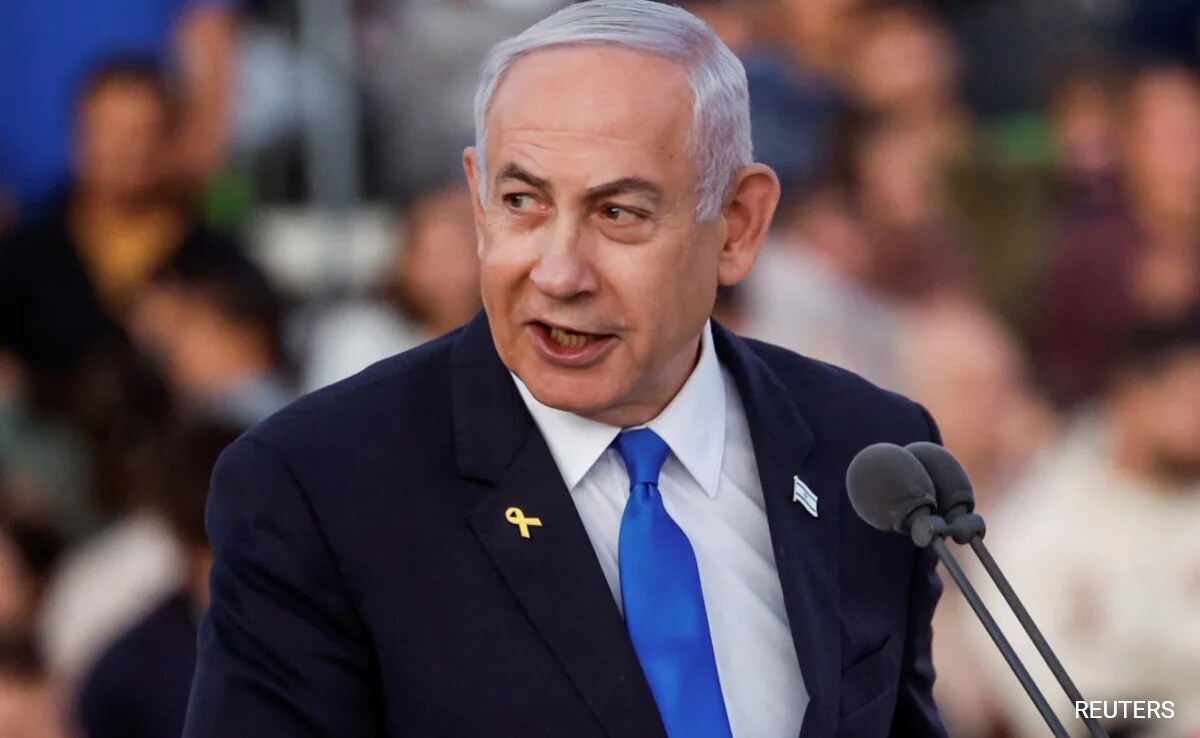Israel, Gaza react to killing of Yahya Sinwar
Prime Minister Benjamin Netanyahu said Thursday that the killing of Hamas leader Yahya Sinwar had "settled the score with him," but stressed that "the task before us [Israel] is not yet complete."
Netanyahu said Israel's focus was on securing the return of the roughly 100 hostages still in Gaza, taken during Hamas' brutal Oct. 7 attack last year, of whom a third are believed to be dead.
"This is an important moment in the war," Netanyahu said to the families of the hostages, according to the Reuters news agency. "We will continue full force until the return home of all your loved ones, who are our loved ones, too. This is our supreme obligation. This is my supreme obligation."
President Biden said Sinwar's death after almost two decades of Hamas rule in Gaza was good news, "for Israel, for the United States, and for the world." Along with other senior U.S. officials, he indicated that it should bring new hope for a cease-fire in the year-long war.
Speaking Friday in Germany, Mr. Biden said he'd told Netanyahu that Sinwar had blood on his hands, adding: "Let's also make this moment an opportunity" for peace.
But Hamas did not mention any renewed push for a cease-fire agreement with Israel after the killing of its leader.
"It seems that Israel believes that killing our leaders means the end of our movement and the struggle of the Palestinian people," Dr. Basem Naim, a member of the U.S. and Israeli-designated terrorist group's Political Bureau said in a statement on Friday. "They can believe what they want, and this is not the first time they said that."
"Hamas each time became stronger and more popular, and these leaders became an icon for future generations to continue the journey towards a free Palestine," Naim said.
 Yahya Sinwar is seen in a file photo.
Yahya Sinwar is seen in a file photo.
The killing of Sinwar, Hamas' top commander in Gaza since 2017 and the group's overall leader since August, was a massive blow to Hamas. Senior Hamas spokesperson Ismael al-Sawarta told CBS News in Gaza on Thursday that his death would "complicate the situation, because he was the key for the negotiations and he was the political leader of Hamas."
But he added: "I don't think his death will impact or change the war, because the Palestinian resistance is not led by an individual, but it is an institution."
Deputy Hamas leader Khalil al-Hayya confirmed Sinwar's death Friday in a televised speech, and said the group would continue on the same path it's been on. Al-Hayya said Hamas would not release the remaining hostages without a cease-fire deal and the withdrawal of Israeli troops from Gaza.
All three Hamas officials noted that the group had kept up its fight against Israel following the assassination in late July of its previous political chief Ismail Haniyeh in Iran. Israel has killed many senior figures of both Hamas and its powerful ally Hezbollah in Lebanon in recent months — but it continues fighting both groups in conflicts that have killed tens of thousands of people, most of them civilians.
Many Israelis were jubilant over Sinwar's death, gathering Thursday on beaches and even outside the lab where his remains were identified to chant and dance.
 People hold placards as they celebrate the death of Hamas leader Yahya Sinwar, in Jerusalem, Oct. 17, 2024.
MENAHEM KAHANA/AFP/Getty
People hold placards as they celebrate the death of Hamas leader Yahya Sinwar, in Jerusalem, Oct. 17, 2024.
MENAHEM KAHANA/AFP/Getty
But not everyone in the country was celebrating, and many did not appear to share in the hope that his killing might mean a turning point for the war, or for their missing loved ones.
At a rally outside the Defense Ministry for the hostages still held in Gaza, families and supporters told CBS News they feared Hamas militants could now kill those who've survived more than a year in captivity.
Asked whether she believed Israel was actually closer to peace, or possibly further away after Sinwar's killing, a woman at the rally who only gave her first name, Ariella, was unsure.
"I don't know. I wish I knew," she told CBS News. "I want it to be closer to be peace. I really want them to be back. I want everything to be okay again."
Among the hostages still in Gaza is 23-year-old Israeli-American Omer Neutra. His parents Orna and Ronen just marked their son's birthday — without him, for the second time.
"It's just unfathomable that this is his second birthday in captivity," Orna said. "We really, really hope that this nightmare will finally come to an end for us… We are still stuck on October 7th; One long, nightmarish day."
Israel launched its war in Gaza in immediate response to Hamas' terrorist attack, which killed 1,200 people and saw 251 others taken hostage. That war has now killed more than 42,400 Palestinians, wounded almost 100,000, and displaced virtually the entire 2.3 million people of the Gaza Strip, according to the Hamas-run enclave's health ministry.
And despite the remarks from Mr. Biden suggesting a new opportunity to push for peace, the Israeli military was still escalating its operations in northern Gaza on Friday. The health ministry, which does not distinguish between civilian and combatant casualties, said Friday that Israeli operations had killed 62 people and wounded 300 others over the previous 24 hours alone.
Palestinians in Gaza, who've lived under constant bombardment for a year and been displaced time and time again, voiced little optimism to CBS News.
"It won't change anything," one woman said of Sinwar's death. "Someone else will replace him. God willing, the war will end and we will go back home."
Haley Ott is the CBS News Digital international reporter, based in the CBS News London bureau.











 English (US) ·
English (US) ·